Botanical Ingredients
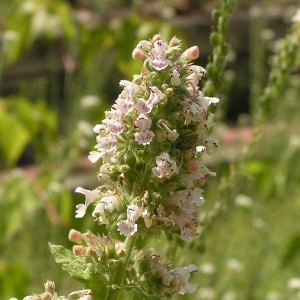 Catnip Nepeta Cataria – This herb is a mild sedative, an antispasmodic, and used for stress relief and insomnia. Simple and safe, catnip is one of the most useful botanicals. Associated with the moon, nepeta soothes digestion and calms nerves while erasing stress with the love of a kitten’s purr.
Catnip Nepeta Cataria – This herb is a mild sedative, an antispasmodic, and used for stress relief and insomnia. Simple and safe, catnip is one of the most useful botanicals. Associated with the moon, nepeta soothes digestion and calms nerves while erasing stress with the love of a kitten’s purr.
 Green Tea – The secret of green tea lies in the fact it is rich in catechin polyphenols, particularly, epigallocatechin gallate (EGCG). EGCG is a powerful anti-oxidant. Besides inhibiting the growth of cancer cells, [EGCG] kills cancer cells without harming healthy tissue. This anti-oxidant has also been correlated with lowering LDL cholesterol levels, and inhibiting the abnormal formation of blood clots. The latter takes on added importance when you consider that thrombosis, the formation of abnormal blood clots, is the leading cause of heart attacks and stroke. Green Tea, camillia sinensis, is an antioxidant, a stimulant, and a heart tonic. Tea is the most popular drink in the world.
Green Tea – The secret of green tea lies in the fact it is rich in catechin polyphenols, particularly, epigallocatechin gallate (EGCG). EGCG is a powerful anti-oxidant. Besides inhibiting the growth of cancer cells, [EGCG] kills cancer cells without harming healthy tissue. This anti-oxidant has also been correlated with lowering LDL cholesterol levels, and inhibiting the abnormal formation of blood clots. The latter takes on added importance when you consider that thrombosis, the formation of abnormal blood clots, is the leading cause of heart attacks and stroke. Green Tea, camillia sinensis, is an antioxidant, a stimulant, and a heart tonic. Tea is the most popular drink in the world.
 Nettles – A solution of nettle extract may be applied to the skin to relieve joint pain and muscle aches. The root is recommended as a diuretic for relief of benign prostatic hyperplasia (BPH), and as a natural oral remedy, products made from nettle’s aerial parts may interfere with the body’s production of inflammation-causing chemicals, including prostaglandins. Consequently, nettle may have an anti-inflammatory effect. Nettle has been studied extensively and has shown promise in treating Alzheimer’s disease, arthritis, asthma, bladder infections, bronchitis, bursitis, gingivitis, gout, hives, kidney stones, laryngitis, multiple sclerosis, PMS, prostate enlargement, sciatica, and tendonitis. Nettles, urtica diocoa, has a detoxifying and nourishing effect; it is chock full of oxygen and nutrients, has a high mineral content, and is safe for long term use in chronic illness.
Nettles – A solution of nettle extract may be applied to the skin to relieve joint pain and muscle aches. The root is recommended as a diuretic for relief of benign prostatic hyperplasia (BPH), and as a natural oral remedy, products made from nettle’s aerial parts may interfere with the body’s production of inflammation-causing chemicals, including prostaglandins. Consequently, nettle may have an anti-inflammatory effect. Nettle has been studied extensively and has shown promise in treating Alzheimer’s disease, arthritis, asthma, bladder infections, bronchitis, bursitis, gingivitis, gout, hives, kidney stones, laryngitis, multiple sclerosis, PMS, prostate enlargement, sciatica, and tendonitis. Nettles, urtica diocoa, has a detoxifying and nourishing effect; it is chock full of oxygen and nutrients, has a high mineral content, and is safe for long term use in chronic illness.
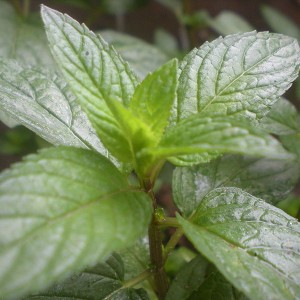 Peppermint Leaf– A primary benefit of peppermint is its aid to the digestive system. It can calm the stomach, aid in getting more nutrition from the food, kill harmful bacteria in the stomach, and relax intestinal muscles, thus helping with the problem of cramping. An after dinner mint can reduce stomach gas and the amount of time food is in the stomach. It is often the predominant flavor of anti-nausea medicine, due to peppermint’s ability to sooth the stomach lining. Peppermint can increase the quantity of bile produced by the liver, and its ability to flow. This aids in the digestion of fats, and can decrease bad cholesterol. Peppermint also contains vitamins A and C, magnesium, potassium, inositol, niacin, copper, iodine, silicon, iron, and sulfur.
Peppermint Leaf– A primary benefit of peppermint is its aid to the digestive system. It can calm the stomach, aid in getting more nutrition from the food, kill harmful bacteria in the stomach, and relax intestinal muscles, thus helping with the problem of cramping. An after dinner mint can reduce stomach gas and the amount of time food is in the stomach. It is often the predominant flavor of anti-nausea medicine, due to peppermint’s ability to sooth the stomach lining. Peppermint can increase the quantity of bile produced by the liver, and its ability to flow. This aids in the digestion of fats, and can decrease bad cholesterol. Peppermint also contains vitamins A and C, magnesium, potassium, inositol, niacin, copper, iodine, silicon, iron, and sulfur.
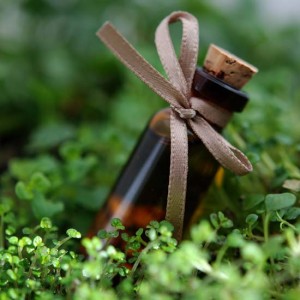 Peppermint Oil – Some of the health benefits particularly found with peppermint oil include its ability to treat indigestion, respiratory problems, headache, nausea, fever, stomach and bowel spasms and pain.
Peppermint Oil – Some of the health benefits particularly found with peppermint oil include its ability to treat indigestion, respiratory problems, headache, nausea, fever, stomach and bowel spasms and pain.
S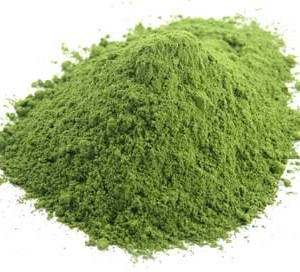 pinach Powder– Spinach contains protein and fiber, and a host of nutrients: vitamins A, C, K, sodium, folic acid, calcium, manganese, phosphorus, potassium, thiamine, riboflavin, niacin, lutein, beta-carotene and carotenoids, chlorophyll, antioxidants, phytochemicals, and lipoic acid. Some of the documented benefits of spinach powder are that it strengthens the immune system, battles hypoglycemia, treats cataracts, fights heart disease, cancer, diabetes mellitus, and stroke. Evidence suggests the nutrients in spinach can reduce your risk of bone degeneration, improve circulation, reduce liver inflammation, and treat jaundice. Spinach’s inflammatory effect can be therapeutic for arthritis.
pinach Powder– Spinach contains protein and fiber, and a host of nutrients: vitamins A, C, K, sodium, folic acid, calcium, manganese, phosphorus, potassium, thiamine, riboflavin, niacin, lutein, beta-carotene and carotenoids, chlorophyll, antioxidants, phytochemicals, and lipoic acid. Some of the documented benefits of spinach powder are that it strengthens the immune system, battles hypoglycemia, treats cataracts, fights heart disease, cancer, diabetes mellitus, and stroke. Evidence suggests the nutrients in spinach can reduce your risk of bone degeneration, improve circulation, reduce liver inflammation, and treat jaundice. Spinach’s inflammatory effect can be therapeutic for arthritis.
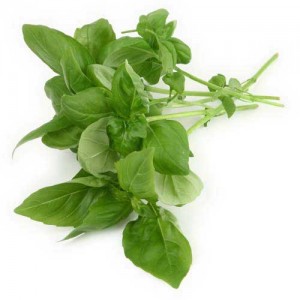 Tulsi Leaf– Tulsi is an immune booster. This has been one of the plant’s more common uses throughout history, and it is still one of its more valued benefits. While generally effective on boosting a person’s entire immune system, the tulsi plant appears to provide the largest benefit to the respiratory system, and infection fighting in that area. The number of benefits that are attributed to the tulsi plant are numerous. Some of the more common benefits include stress relief, enhanced metabolism, increased stamina, lower cholesterol levels, and improved digestion.
Tulsi Leaf– Tulsi is an immune booster. This has been one of the plant’s more common uses throughout history, and it is still one of its more valued benefits. While generally effective on boosting a person’s entire immune system, the tulsi plant appears to provide the largest benefit to the respiratory system, and infection fighting in that area. The number of benefits that are attributed to the tulsi plant are numerous. Some of the more common benefits include stress relief, enhanced metabolism, increased stamina, lower cholesterol levels, and improved digestion.
Tulsi Ocimum, sanctum Holy Basil, revered as a sacred plant in India, is an adaptogen (modulates stress response) balances mind, emotions and nerves; it is stress relieving and energizing. Tulsi protects our respiratory system from environmental toxins.
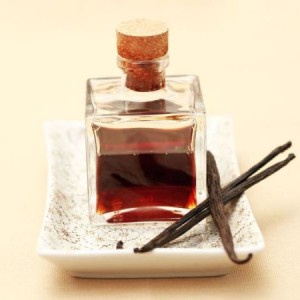 Vanilla Oil (V. Tahitiensis) – Vanilla is derived from the celadon colored orchid’s fruit or seed pod. Old medieval literature described it as an aphrodesiac. Vanilla increases levels of catecholamines including adrenaline. The oil has a complex floral aroma.
Vanilla Oil (V. Tahitiensis) – Vanilla is derived from the celadon colored orchid’s fruit or seed pod. Old medieval literature described it as an aphrodesiac. Vanilla increases levels of catecholamines including adrenaline. The oil has a complex floral aroma.
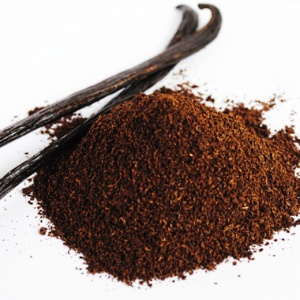 Vanilla Bean Powder – Natural vanilla is a good source of antioxidants and phytonutrients, and because it is in a whole food form, Navitas Naturals Vanilla Powder also provides dietary fiber, vitamins, and minerals. The fragrant spice is also used in aromatherapy as one of the most calming and uplifting scents available.
Vanilla Bean Powder – Natural vanilla is a good source of antioxidants and phytonutrients, and because it is in a whole food form, Navitas Naturals Vanilla Powder also provides dietary fiber, vitamins, and minerals. The fragrant spice is also used in aromatherapy as one of the most calming and uplifting scents available.
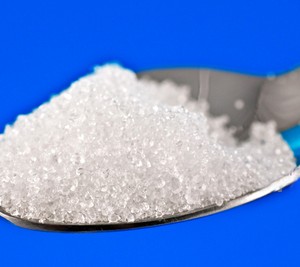 Xylitol – Xylitol is an all-natural sweetener with no known toxic levels. Xylitol is extracted from U.S. grown hardwood trees. We believe that the practices employed in the harvesting and processing are ecologically sustainable.
Xylitol – Xylitol is an all-natural sweetener with no known toxic levels. Xylitol is extracted from U.S. grown hardwood trees. We believe that the practices employed in the harvesting and processing are ecologically sustainable.
Xylitol helps stabilize hormone levels, promotes good health, and has none of the negative side effects of white sugar or artificial sweeteners. Xylitol is a natural insulin stabilizer, therefore it doesn’t cause a spike in blood sugar and actually helps reduce sugar and carbohydrate cravings. A large percentage passes through the body before the carbohydrates are absorbed, thereby making it safe for diabetics or anyone pursuing a healthy lifestyle.
Chemically, xylitol differs from other sweeteners such as sorbitol, fructose, and glucose because its molecule has five, instead of six, carbon atoms. The body does not require insulin to metabolize xylitol. For this reason polyols like xylitol produce a lower glycemic response than sucrose or glucose. Xylitol is found to have a glycemic index of seven while sugar is 68.
Xylitol has been proven to inhibit the growth of bacteria; most bacteria and yeast in the mouth are unable to make use of xylitol. Xylitol does not ferment so it cannot produce acid. Maintaining a neutral pH level in the mouth is beneficial as an alkaline environment is inhospitable to the destructive bacteria. As a sugar alcohol, it differs from the ’sugar’ because its special properties do not support oral bacteria and inhibit plaque formation. Xylitol was discovered almost simultaneously by German and French chemists in the late 19th century and has been used extensively in Europe since World War II. Its dental significance was researched in Finland in the early 1970′s, when scientists showed it had significant dental benefits. In Finland, Sweden, Japan, and many other countries, xylitol is widely used in candy, gum, and oral care products. While xylitol is fairly new in the U.S. market, its use is rapidly increasing as more people become aware of its unique health benefits.
Xylitol is approved for use by:
The US Food and Drug Administration
The World Health Organization
American Academy of Pediatric Dentistry
The European’s Union’s Scientific Committee for Food
Calorie Control Council and many others.
